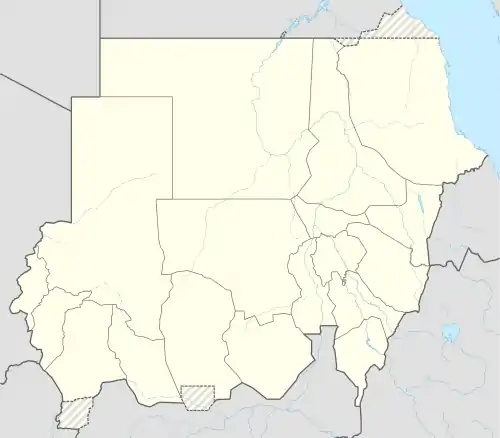Korti
كورتي Kurti | |
|---|---|
Town | |
 Korti Location in Sudan | |
| Coordinates: 18°6′17″N 31°34′3″E / 18.10472°N 31.56750°E | |
| Country | |
| State | Northern |
Korti or Kurti (Arabic: كورتي) is a town in northern-central Sudan. In the Meroitic period the city appeared as Cadetum, Cadata or Coetum in Roman sources. The town lies about 250 kilometres (160 mi) from Khartoum, on the south side of the Nile at the terminus of the Wadi Muqaddam. It is also known for being the centre location for the Shaigiya tribe.
History
In 1820 the town was the site of a battle between the Shaiqiya and an invading force of Muhammad Ali Pasha. In 1881, the Mahdist uprising led to Britain sending in an army in August 1884 under Garnet Wolseley in the so-called Nile Expedition to relieve General Gordon. Korti became a rallying point for British troops.[1] In January 1885 a fort was built by British troops on the north side of the Nile, right in front of Korti. From here, the advance on the Nile and through the desert could take place simultaneously. In the fighting in the Bayuda Desert between Kurti and Metemmeh (on the Nile opposite Shendi) the Madhist Sudanese suffered a defeat in the Battle of Abu Klea soon after the base at Korti was built.
See also
References
- ↑ George, Sir Arthur (January 2013). Life of Lord Kitchener. Cosimo, Inc. p. 106. ISBN 978-1-60206-363-1. Retrieved 13 April 2013.